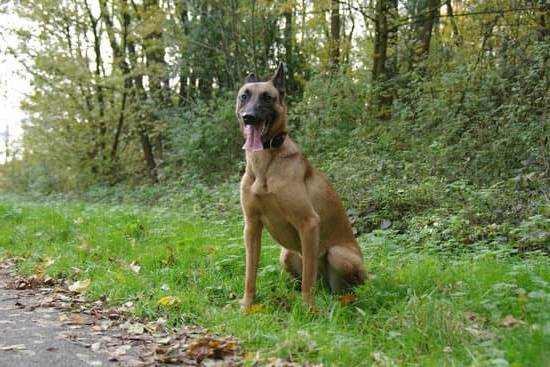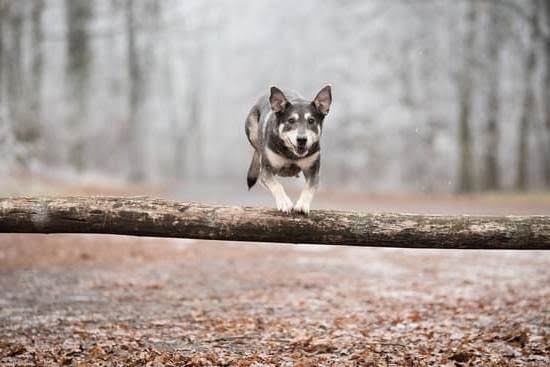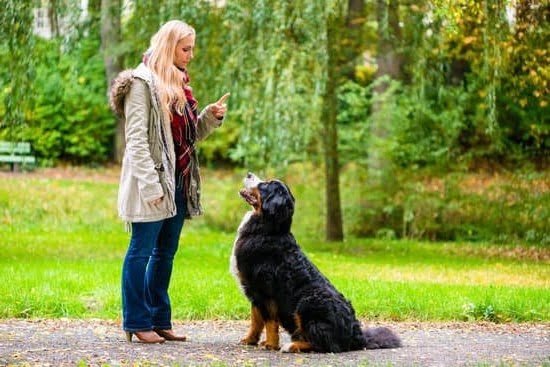Can you train a rescue dog to hunt? Many people wonder about the potential of rescue dogs in hunting activities. Before delving into the training process, it is important to understand the background of rescue dogs and their unique qualities. Rescue dogs often come from varying backgrounds, and it is crucial to assess their natural abilities and instincts before embarking on any training program.
Rescue dogs come from diverse backgrounds, and their experiences can shape their behavior and temperament. Understanding their past can provide valuable insight into how they may respond to hunting training. Additionally, assessing their natural abilities and instincts for hunting will help determine the feasibility of training them for such activities.
When it comes to training rescue dogs for hunting, patience and understanding play a significant role. These dogs may have had challenging experiences in the past, and building trust with them is essential. Taking the time to bond with your rescue dog and creating a positive training environment are crucial steps in preparing them for hunting activities.
Assessing the Rescue Dog’s Natural Abilities and Instincts for Hunting
Rescue dogs come from a variety of backgrounds, and some may have had experiences that make them better suited for hunting. One way to assess a rescue dog’s potential for hunting is by observing their behavior in different environments. Some breeds have natural instincts for hunting, such as pointing breeds, retrievers, and hounds. However, it’s important to note that any dog, regardless of breed or background, can be trained to hunt with the right guidance.
One effective way to assess a rescue dog’s natural abilities for hunting is by conducting a “prey drive test.” This test involves introducing the dog to various stimuli such as moving objects, scents, and sounds associated with hunting.
Observing the dog’s reaction to these stimuli can provide valuable insight into their potential for hunting. Additionally, assessing a rescue dog’s physical attributes, such as their size, strength, and stamina can also provide valuable information about their suitability for hunting activities.
It’s important to approach this assessment process with patience and an open mind. Some rescue dogs may surprise you with their innate hunting abilities despite not having any prior training or experience in this area. With the right training and support, many rescue dogs can develop into successful hunters and become invaluable companions in outdoor activities like hunting.
| Assessment Criteria | Description |
|---|---|
| Prey Drive Test | A method to observe the dog’s reaction to various stimuli associated with hunting |
| Physical Attributes | Evaluating the dog’s size, strength, and stamina as indicators of their suitability for hunting |
| Patience | Approaching the assessment process with patience can help in recognizing a rescue dog’s potential as a hunter |
The Importance of Patience and Understanding in Training a Rescue Dog
Training a rescue dog to hunt requires a significant amount of patience and understanding. Many rescue dogs have experienced trauma or neglect in their past, so it’s crucial to approach their training with empathy and patience. Here are some key points to consider when training a rescue dog for hunting:
1. Understanding the dog’s background: Take the time to learn about your rescue dog’s past, including any potential triggers or fears they may have. This can help you tailor your training approach to accommodate their unique needs.
2. Patience is key: Rescue dogs may require more time and patience than dogs who have been raised in traditional hunting environments. It’s important to remain calm and patient as you work with your rescue dog, especially if they are showing signs of fear or uncertainty.
3. Positive reinforcement: Using positive reinforcement techniques such as treats, praise, and play can help build trust and confidence in your rescue dog. This will create a strong bond between you and your dog as you work together towards the common goal of hunting success.
Can You Train a Rescue Dog to Hunt
effectively in the field. So unleashing their natural instincts for hunting can truly be a rewarding experience for both you and your loyal companion.
Choosing the Right Training Tools and Techniques for Hunting
When it comes to training a rescue dog for hunting, it is crucial to choose the right training tools and techniques. Every dog is different, and what works for one may not necessarily work for another. Here are some tips on how to select the appropriate training tools and techniques for your rescue dog:
1. Research and Consultation: Before beginning the training process, it is essential to conduct thorough research on the specific breed or mix of breeds that your rescue dog belongs to. Different breeds have different hunting instincts, and understanding these instincts can help you tailor your training approach. Additionally, consulting with professional trainers or experienced hunters can provide valuable insights into the most effective tools and techniques for your dog’s breed.
2. Positive Reinforcement: Positive reinforcement is a highly effective technique for training dogs of any background, including rescue dogs. Using treats, praise, and rewards to reinforce desired behaviors during hunting training can help build a strong foundation for your dog’s hunting skills. Positive reinforcement also helps create a bond of trust between you and your rescue dog.
3. Use of Scent Training: Many successful hunting dogs rely heavily on their sense of smell to track and locate game. Incorporating scent training into your rescue dog’s hunting education can be incredibly beneficial. This may involve using scented materials such as deer antlers or bird feathers to familiarize your dog with the scents they will encounter while hunting.
By carefully selecting the right tools and techniques for training your rescue dog to hunt, you can set them up for success in their new role as a hunting companion. With patience, consistency, and dedication, even a rescue dog can develop into an excellent hunting partner.
Building Trust and Bonding With Your Rescue Dog
Understanding the Importance of Trust and Bonding
When it comes to training a rescue dog for hunting, building trust and bonding with your new companion is essential. Many rescue dogs come from backgrounds of abuse, neglect, or abandonment, so gaining their trust may take time. Establishing a strong bond with your rescue dog will not only make the training process more enjoyable for both of you, but it will also lead to a successful partnership in the field.
Creating a Positive Environment
To build trust with your rescue dog, it’s important to create a positive and nurturing environment. Spend time getting to know your dog’s likes and dislikes, as well as their unique personality traits. Engage in activities that promote bonding such as playtime, walks, and basic obedience training. Consistency and patience are key in earning your rescue dog’s trust and helping them feel secure in their new home.
Establishing Clear Communication
Communication is crucial in any training program, especially when working with a rescue dog. Use positive reinforcement techniques such as treats, praise, and physical affection to reinforce good behavior. Consistent communication can help bridge the gap between you and your rescue dog, leading to improved understanding and cooperation during the hunting training process.
By following these steps to build trust and bonding with your rescue dog, you
Steps to Introduce Basic Hunting Commands and Skills
When it comes to training a rescue dog to hunt, it is important to start with the basics. Assessing the rescue dog’s natural abilities and instincts for hunting is crucial in determining if they have the potential to be trained for this purpose. While some rescue dogs may have a strong prey drive and natural hunting instincts, others may require more patience and encouragement to develop these skills.
One of the first steps in introducing basic hunting commands and skills to a rescue dog is building trust and bonding with them. This involves spending quality time with the dog, providing positive reinforcement, and creating a safe environment where they feel comfortable. Building a strong bond with your rescue dog will set the foundation for successful hunting training.
Once trust has been established, you can begin introducing basic hunting commands such as “sit,” “stay,” “come,” and “fetch.” These foundational commands are essential for any hunting dog, as they form the basis for more advanced training. With consistent practice and patience, rescue dogs can learn these basic commands and build their skills from there.
| Rescue Dog Training Step | Description |
|---|---|
| Assess Natural Abilities | Determine the rescue dog’s instinctual ability for hunting |
| Build Trust | Create a strong bond with the dog through positive reinforcement |
| Introduce Basic Commands | Teach foundational commands such as sit, stay, come, and fetch |
Training Tips for Overcoming Challenges With Rescue Dogs
When it comes to training rescue dogs for hunting, there are some unique challenges that may arise. However, with the right approach and mindset, these challenges can be overcome to successfully train a rescue dog to hunt.
Understanding the Rescue Dog’s Background
One of the first steps in overcoming challenges with training a rescue dog for hunting is understanding their background. Many rescue dogs come from unknown or traumatic experiences, which can affect their behavior and trust levels. It’s important to be patient and empathetic, taking the time to build a strong bond with your rescue dog before embarking on hunting training.
Positive Reinforcement Training
Rescue dogs may have varying levels of obedience and may have experienced inconsistent or negative training in the past. This is why positive reinforcement training techniques can be highly effective in overcoming challenges. By using rewards such as treats, praise, and playtime, you can motivate your rescue dog to learn new hunting skills while building a positive association with the training process.
Seeking Professional Help
For some rescue dogs with particularly challenging backgrounds or behaviors, seeking professional help from experienced trainers or behaviorists may be beneficial. These professionals can provide personalized guidance and support tailored to your rescue dog’s specific needs, helping you navigate through any obstacles that arise during the training process.
By approaching the training process with patience, empathy, positive reinforcement, and seeking professional help when needed, you
Real-Life Success Stories of Rescue Dogs Trained for Hunting
In real-life success stories of rescue dogs trained for hunting, we find inspiring examples of how these animals can overcome past trauma and thrive in their new roles as hunting companions. Many people may wonder, “Can you train a rescue dog to hunt?” The answer is yes, and these stories serve as proof of the potential that rescue dogs have when given the right training and support.
One such success story is that of Max, a rescue dog who was adopted from a shelter and trained to become an excellent hunting partner. Max had a difficult past, suffering from neglect and mistreatment before being rescued. However, with patience and understanding, his owner was able to tap into Max’s natural instincts and abilities for hunting.
Through consistent training and positive reinforcement, Max learned to track game, retrieve downed birds, and follow commands in the field. Today, he is a valued member of his owner’s hunting team.
Another remarkable example is the story of Bella, a rescue dog who was initially deemed too skittish and fearful for hunting. However, her dedicated owner saw her potential and worked tirelessly to build trust and confidence in Bella.
With time and perseverance, Bella transformed into a skilled hunter with a keen sense of smell and an unwavering determination in the field. Her journey from a scared shelter dog to a confident hunting companion is a testament to the incredible capabilities of rescue dogs when given the opportunity to shine.
These real-life success stories highlight the rewarding experience of training rescue dogs for hunting. They demonstrate the importance of patience, understanding, and positive reinforcement in unlocking a rescue dog’s innate potential for hunting. By celebrating these achievements, we can inspire others to consider rescue dogs as capable partners in outdoor activities like hunting.
Conclusion
In conclusion, rescue dogs indeed have the potential to be trained for hunting. While some may question whether a dog with an unknown background can be suitable for hunting, assessing the natural abilities and instincts of a rescue dog can reveal their potential as skilled hunting companions. The key lies in patience, understanding, and dedicated training to help them develop the necessary skills.
Choosing the right training tools and techniques is essential for shaping a rescue dog into a capable hunting partner. Whether it’s introducing basic hunting commands or building trust through positive reinforcement, the process requires time and effort. However, with perseverance and the right approach, rescue dogs can become successful hunters.
Real-life success stories of rescue dogs trained for hunting are a testament to the potential of these animals. With proper guidance and training, they can overcome challenges and adapt to their new roles as skilled hunting companions. It’s important to recognize the untapped potential of rescue dogs and celebrate their capabilities in this field. Ultimately, with dedication and patience, a well-trained rescue dog can indeed become a valued asset for any hunting enthusiast.
Frequently Asked Questions
What Is the Easiest Dog to Train for Hunting?
The easiest dog to train for hunting is typically the Labrador Retriever. They are known for their intelligence, eagerness to please, and natural retrieving ability, making them highly trainable for hunting tasks.
Can I Train My Dog to Be a Hunting Dog?
Yes, you can train your dog to be a hunting dog with proper guidance and consistent training. It’s important to start with basic obedience training before moving on to specific hunting skills like retrieving and following scent trails.
What Is the Best Age to Train a Dog for Hunting?
The best age to train a dog for hunting is around 6-8 months old when they are still young enough to be molded but have also developed some level of physical maturity. This age allows for effective training without overwhelming the dog.

Welcome to the blog! I am a professional dog trainer and have been working with dogs for many years. In this blog, I will be discussing various topics related to dog training, including tips, tricks, and advice. I hope you find this information helpful and informative. Thanks for reading!





